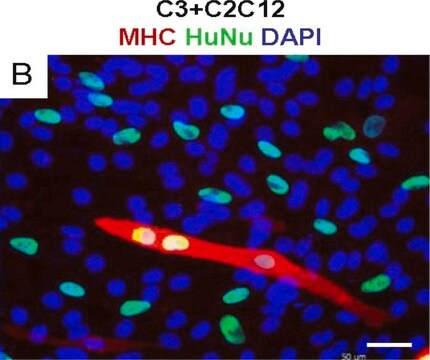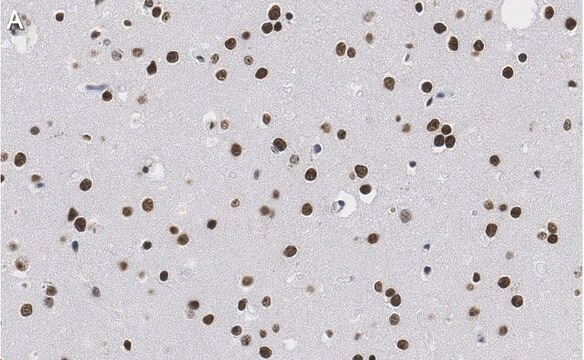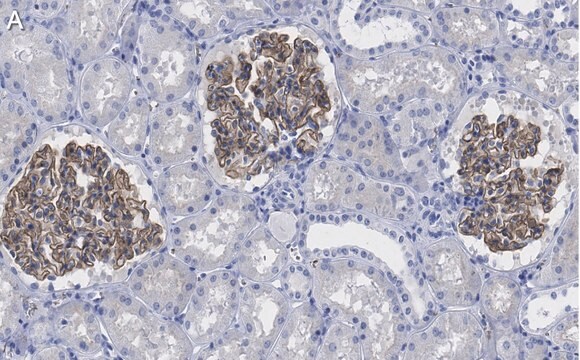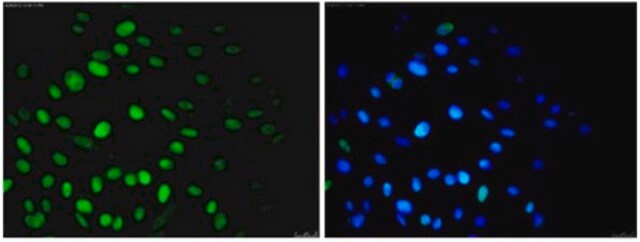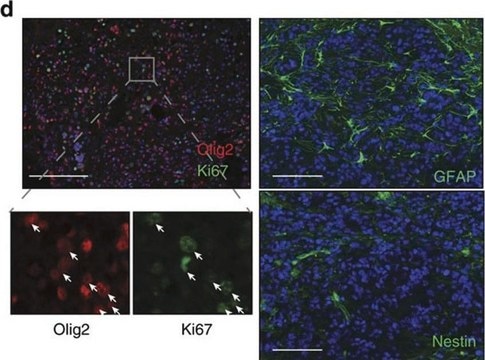MAB1281C3
Anti-Nuclei Antibody, clone 235-1, Cy3 conjugate
clone 235-1, from mouse, CY3 conjugate
Sinónimos:
HuNu
About This Item
Productos recomendados
biological source
mouse
Quality Level
conjugate
CY3 conjugate
antibody form
purified immunoglobulin
antibody product type
primary antibodies
clone
235-1, monoclonal
species reactivity
human
technique(s)
immunocytochemistry: suitable
isotype
IgG1
shipped in
wet ice
target post-translational modification
unmodified
General description
Immunogen
Application
Stem Cell Research
Stem Cell Research
Pluripotent & Early Differentiation
Developmental Neuroscience
Mesenchymal Stem Cells
Neurodegenerative Diseases
Quality
Physical form
Storage and Stability
Analysis Note
Human foreskin fibroblasts (SCC058)
Other Notes
Disclaimer
¿No encuentra el producto adecuado?
Pruebe nuestro Herramienta de selección de productos.
Storage Class
12 - Non Combustible Liquids
wgk_germany
WGK 2
flash_point_f
Not applicable
flash_point_c
Not applicable
Certificados de análisis (COA)
Busque Certificados de análisis (COA) introduciendo el número de lote del producto. Los números de lote se encuentran en la etiqueta del producto después de las palabras «Lot» o «Batch»
¿Ya tiene este producto?
Encuentre la documentación para los productos que ha comprado recientemente en la Biblioteca de documentos.
Nuestro equipo de científicos tiene experiencia en todas las áreas de investigación: Ciencias de la vida, Ciencia de los materiales, Síntesis química, Cromatografía, Analítica y muchas otras.
Póngase en contacto con el Servicio técnico
